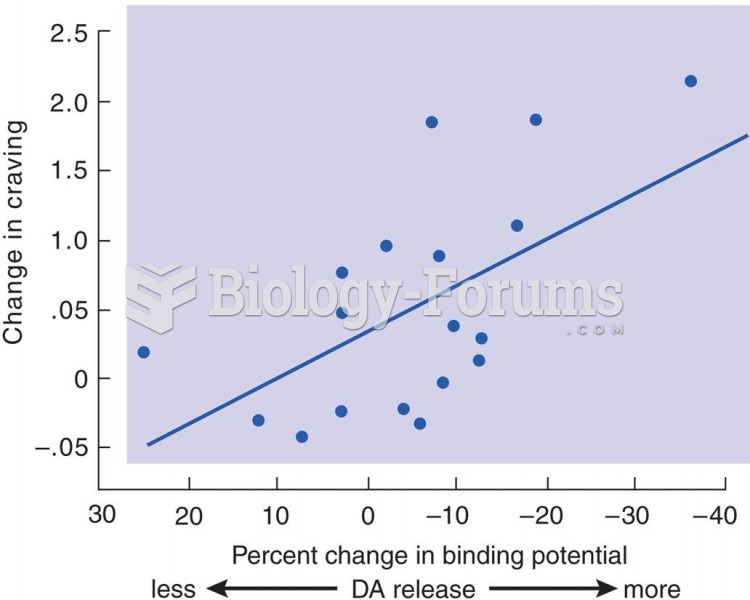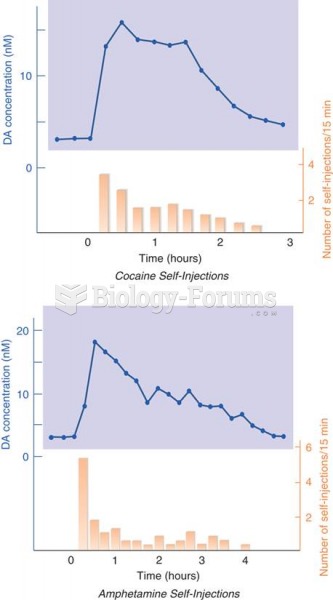This topic contains a solution. Click here to go to the answer
|
|
|
Did you know?
In 1835 it was discovered that a disease of silkworms known as muscardine could be transferred from one silkworm to another, and was caused by a fungus.
Did you know?
Green tea is able to stop the scent of garlic or onion from causing bad breath.
Did you know?
About 3.2 billion people, nearly half the world population, are at risk for malaria. In 2015, there are about 214 million malaria cases and an estimated 438,000 malaria deaths.
Did you know?
In most climates, 8 to 10 glasses of water per day is recommended for adults. The best indicator for adequate fluid intake is frequent, clear urination.
Did you know?
The U.S. Pharmacopeia Medication Errors Reporting Program states that approximately 50% of all medication errors involve insulin.
 Scattergrams are a mechanism used by political scientists to show patterns and relationships among v
Scattergrams are a mechanism used by political scientists to show patterns and relationships among v
 This girl ran four spinning machines in a cotton mill in Whitnel, North Carolina. Only 4 feet, 3 inc
This girl ran four spinning machines in a cotton mill in Whitnel, North Carolina. Only 4 feet, 3 inc





